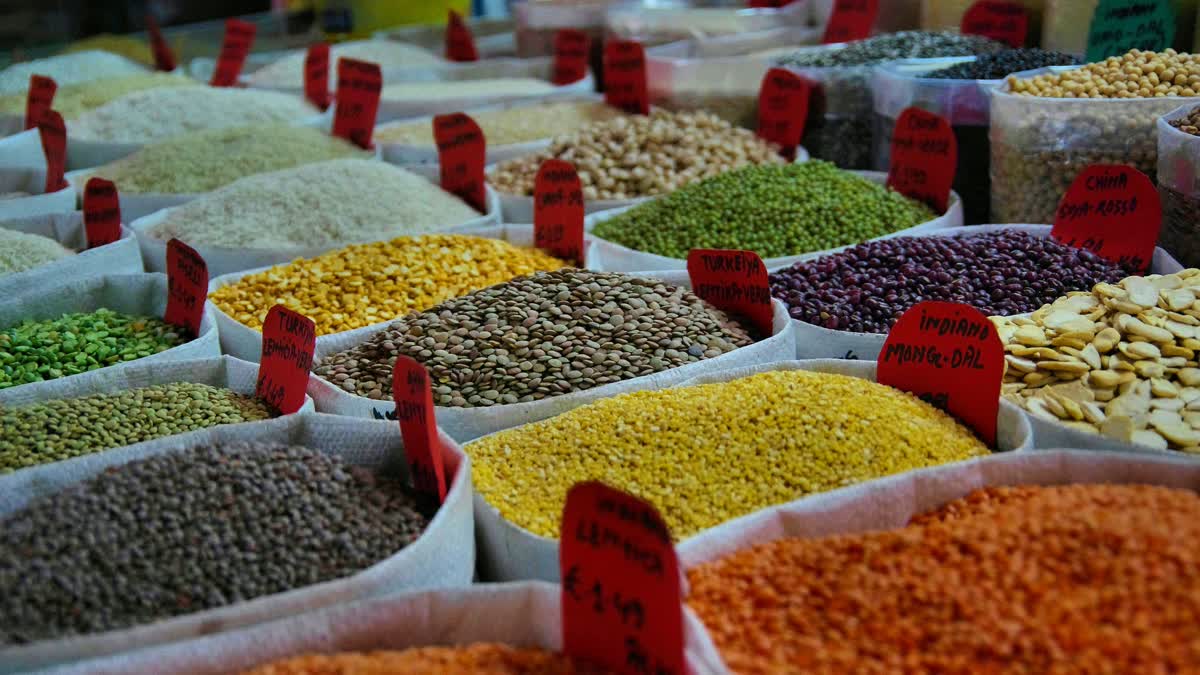The 13th Ministerial Conference of the World Trade Organization (WTO) which has kicked off today and will continue till February 29 at Abu Dhabi is very critical for India as it will aggressively push to secure a permanent solution for its public stockholding programmes of foodgrains, the core of country’s food procurement to ensure food security. ETV Bharat explains:
What is public stockholding of food?
According to the WTO, public stockholding programmes are used by some governments to purchase, stockpile and distribute food to people in need. While food security is a legitimate policy objective, some stockholding programmes are considered to distort trade when they involve purchases from farmers at prices fixed by the governments, known as “administered” prices, which in the Indian context is the minimum support price (MSP) that the government decides for various Kharif and Rabi crops.
The “interim” peace clause
At the Bali Ministerial Conference held in 2013 it was agreed upon on an interim basis, public stockholding programmes in developing countries would not be challenged legally even if a country’s agreed limits for trade-distorting domestic support were breached. They also agreed to negotiate a permanent solution to this issue. India was then able to successfully argue that subsidy beyond the ceiling was essential on public stockholding of foodgrains as it was procured by the state at prices meant to support Indian farmers. It was also accepted that such public stockholding programmes ensure food security for 80 crore people.
The concession translated into what was described as the “peace clause. The so-called peace clause has not, however, been made a permanent provision at subsequent WTO meetings. Instead, it has been extended on a temporary basis at every subsequent ministerial conference.
Why is India pressing for a permanent solution?
The challenge for India is to make this into a permanent facility, given the need of emerging economies to provide farm subsidies to support agricultural growth and food security. Without such a permanent solution, India faces the prospect of disputes being raised at WTO over breach of subsidy limits.
India wants to seek a permanent solution on public stockholding with more enhanced terms, compared to the 2013 Bali peace clause.
A solution is crucial since member nations have been raising questions over India’s minimum support price programme for grains, particularly rice, since the subsidy has breached the limit under the trade norms thrice. India has invoked the ‘peace clause’ under WTO norms to protect its food procurement programme against any action from member nations in case the limit is breached.
While some developed countries have argued that public procurement at subsidised rates and storage distorts global agriculture trade, India, on the other hand, has maintained that they have to protect the interest of poor and vulnerable farmers, besides taking care of the food security needs of a large section of the population.
India has voiced that it has to protect the interest of poor and vulnerable farmers, besides taking care of the food security needs of a large section of the population. The government provides 5-kg of free food grains per month to around 80 crore poor people under the Pradhan Mantri Garib Kalyan Anna Yojana (PMGKAY).
Food Security under PMGKAY
The Centre has said that under PMGKAY free food grains will be provided to about 81.35 crore beneficiaries (i.e. Antyodaya Anna Yojana (AAY) households and Priority Household (PHH) beneficiaries) for a period of next five years began from January 1, 2024. The entitlement is as such they get 35 kg of food grains per AAY household per month and 5 kg of food grains per person per month in case of a PHH.
The government’s move is to ensure the welfare of the beneficiaries and to strengthen the provisions of the National Food Safety Act (NFSA, 2013). The act provides for accessibility, affordability and availability of food grains for the poor and to maintain uniformity across the states.
Details available from the project report indicate the annual food subsidy borne by the Centre towards distribution of food grains to AAY households and PHH beneficiaries, and other welfare schemes is to the tune of Rs. 2.13 lakh crore.
It has a projection of Rs 11.80 lakh crore for the said five years as food subsidy under PMGKAY, in order to remove the financial burden of the poor and the poorest of the poor.
Read More
Coalitions at WTO to Help India Push for Open Payment Systems Adoption, Cut Remittance Cost: GTRI


